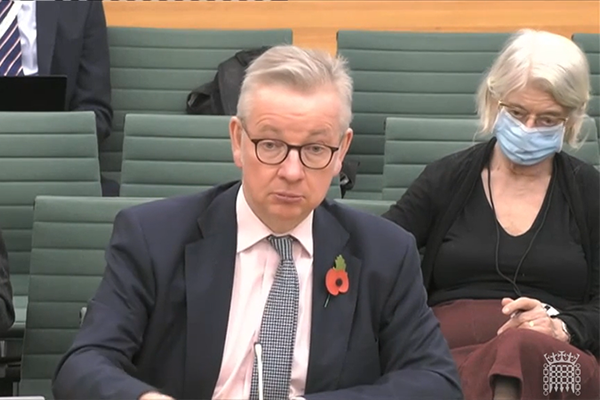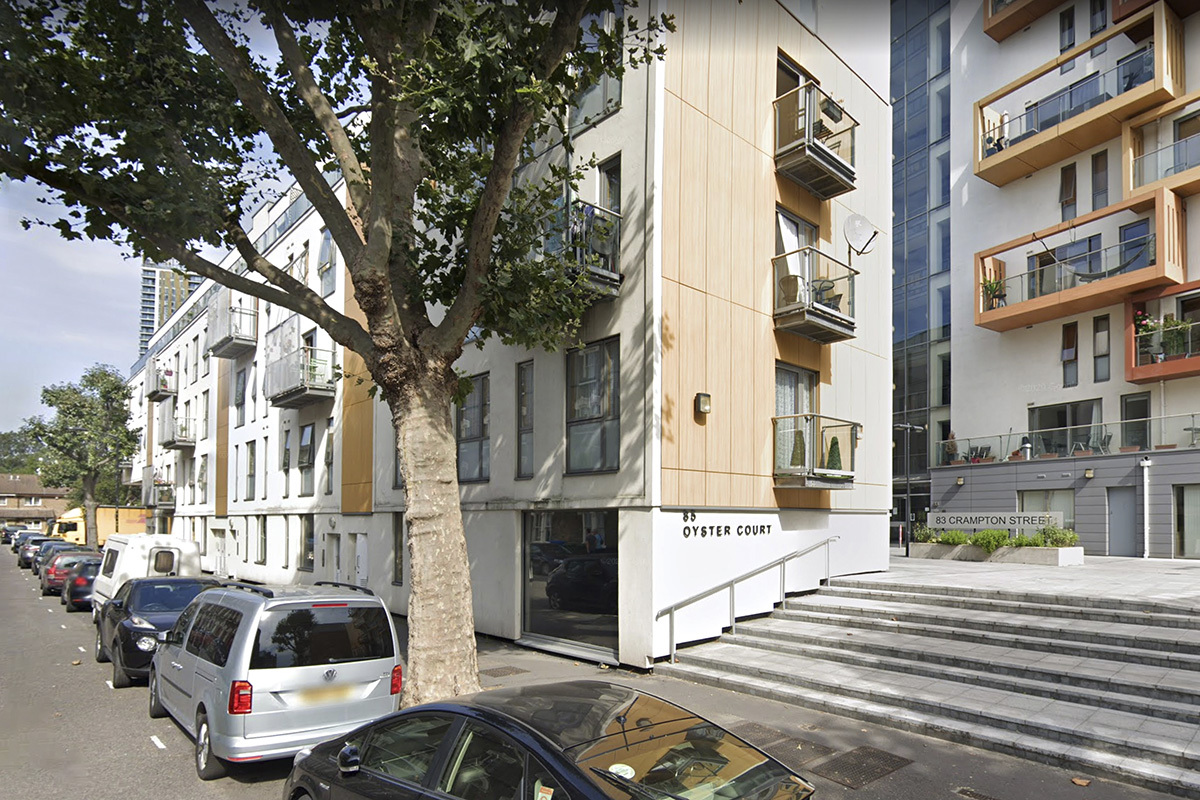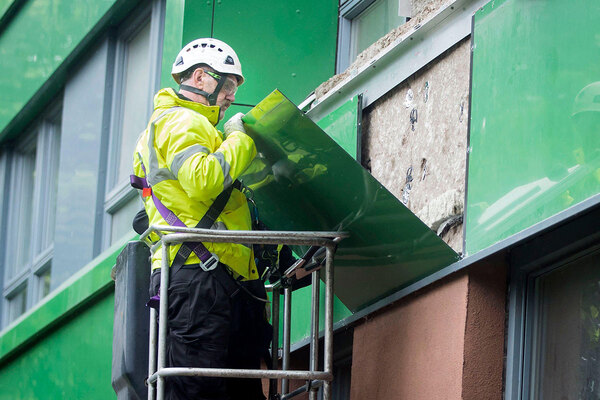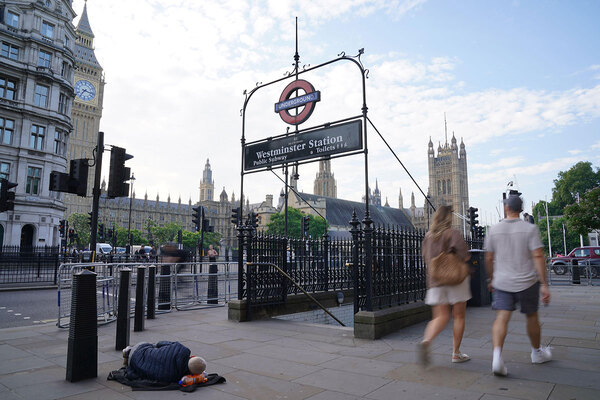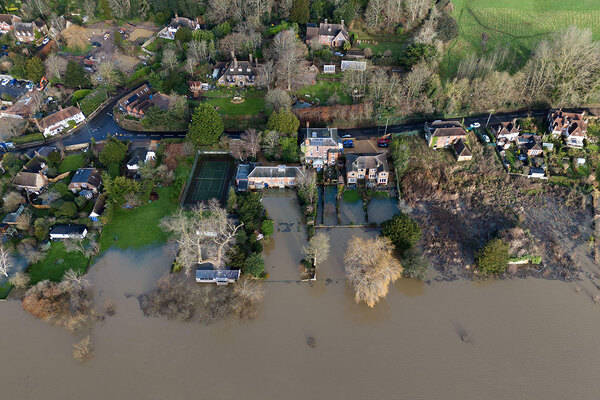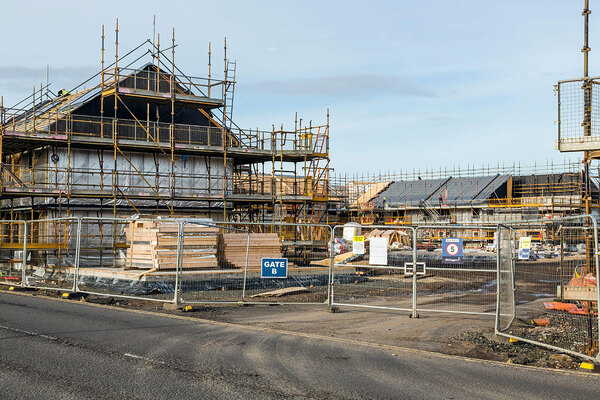Campaigners tell Gove to ‘get a firm grip’ on cladding crisis after RICS rejection
Housing secretary Michael Gove has been told to “get a firm grip” on the cladding crisis after the Royal Institution of Chartered Surveyors (RICS) rejected government plans to change its advice to lenders and scrap checks on buildings under 18 metres.
In a statement in response to the RICS decision, the End Our Cladding Scandal campaign has told Mr Gove to “take control of the risk assessment process”, following RICS’ announcement last week that it would stick to its current advice.
The decision to maintain its advice flew in the face of previous government messages to banks which suggested that they should no longer ask for EWS1 forms for buildings under 18 metres tall. RICS said that it was not in the public interest to change the guidance.
The statement from RICS also called on the government to significantly enhance the amount of money it was giving to remediate buildings and called for a plan to increase the speed with which work was taking place.
Responding to this, End Our Cladding Scandal said that RICS’ statement supported its position that the government needed to take control of the risk assessment process and lead a national effort to make buildings safe, including ensuring that the Building Safety Fund covers all buildings and starting a remediation plan that prioritises the most at-risk blocks.
It said: “We ask Mr Gove to please get a firm grip of this crisis, from ensuring a co-ordinated approach to risk assessment to funding wherever required to remediation or risk mitigation works being signed off – this must be undertaken by a truly independent, centralised entity that will assess risk consistently and proportionately.”
The decision by RICS is a major blow to the government’s plans to take low to medium-rise blocks out of the EWS1 process.
EWS1 forms were introduced by RICS in 2019 to provide a framework for surveyors to assess the compliance of a building’s facade. Financial lenders began to require such forms on blocks of flats of any height, with many subsequently failing the checks, leaving residents with costly remediation bills.
Speaking in parliament in July, former housing secretary Robert Jenrick said that lenders should not ask for ESW1 forms for buildings under 18 metres tall as “there was no evidence of systemic risk of fire in blocks of flats”.
However, financial lenders had only agreed to drop the requirement of EWS1 checks if RICS changed its guidance.
In the statement, the End Our Cladding Scandal campaign said: “The continued reliance on industry failed a long time ago and we must have a new approach – innocent leaseholders are in the middle of this ongoing nightmare and our safety must finally be the priority.”
RICS’ decision not to change its guidance comes weeks after prime minister Boris Johnson doubled down on claims that leaseholders affected by the cladding scandal were being “unnecessarily anxious” about the safety of their homes.
Mr Johnson had dismissed a request from Paul Blomfield, MP for Sheffield Central, to meet one of his constituents who is facing huge bills for waking watches at her flat in the city, stating that waking watches were “absurd” and that “many millions of homes were not unsafe”.
Mr Johnson also claimed that fire safety issues were “undermining confidence in the market”.
Campaigners added: “Despite what the prime minister may bluff and bluster in the commons, valuers, lenders and insurers cannot ignore this risk; homeowners in these buildings cannot escape this risk, and the government must stop hiding from the true scale of this crisis.”
Sign up for our fire safety newsletter
Already have an account? Click here to manage your newsletters
